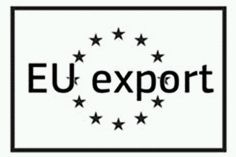The European Commission published on 28 May 2018 a proposal1 for a "manufacturing waiver" to permit third parties to manufacture a medicinal product protected by a Supplementary Protection Certificate for the purposes of export to countries outside the EU. The Commission aims to have the new legislation in place by 2019.
Background and scope of the proposed manufacturing waiver
The possibility of a manufacturing waiver has been under discussion since 2015. The present proposal is that the waiver will be provided by way of a Regulation to amend the existing Medicinal Products Supplementary Protection Certificate (SPC) Regulation (469/2009).
The proposed Regulation would exclude certain acts from the protection conferred by SPCs. In particular, it would permit third parties to make the medicinal product protected by the SPC for the exclusive purpose of exporting the product to countries outside the EU. The proposed Regulation would also permit related acts that are strictly necessary either for that making or for the actual export itself. A third party seeking to take advantage of the exemptions set out in the proposed Regulation is described as a "maker".
The specific acts which would no longer constitute infringement of an SPC, according to the proposed Regulation, are discussed in Recital (9). That Recital suggests that the "related acts" discussed above include:
"any upstream or downstream acts by the maker or by third parties in a contractual relationship with the maker, where such acts would otherwise require the consent of the certificate-holder, and are strictly necessary for making for the purpose of export or for the actual export itself. For instance, such acts may include the supply and import of active ingredients for the purpose of making the medicinal product to which the product covered by the certificate corresponds, or temporary storage of the product or advertising for the exclusive purpose of export to third country destinations."
Requirements for the maker to benefit from the waiver
To benefit from the waiver, the maker must comply with a number of requirements.
Firstly, the maker must notify the Patent Office of the Member State where making is to take place at least 28 days before the intended start date of manufacture. The notification must provide the following information:
- the name and address of the maker;
- the address or addresses where the manufacture is to take place;
- details of the SPC and the product;
- details of any manufacturing authorisation relevant to the proposed manufacture or, if none, a valid certificate of good manufacturing practice covering the premises where the making is to take place;
- the intended start date of manufacture; and
- an indicative list of intended third countries to which the product is to be exported
The notification must be published by the Patent Office within 15 days of receipt.
The maker must ensure that the following logo is affixed to the outer packaging of the product, indicating that it is a product for EU export.

Finally, the maker must ensure that persons in a contractual relationship with the maker and who carry out the "strictly necessary" related acts outlined above are fully informed and aware that (a) the products are for export only, and (b) placing on the market in the EU, import or re-import may result in infringement of the SPC.
Next steps and transitional provisions
The proposal now passes to the Council and Parliament who will consider whether the Regulation should be brought into effect as it is or with amendments. There will be further lobbying. Generic manufacturers will, no doubt, be disappointed that the exclusion is not wider, for example permitting manufacture for stockpiling for EU launch as soon as SPCs expire. In contrast, SPC holders will be disappointed by the weakening of intellectual property rights which may make the EU less attractive for innovative research and development.
The Commission aims to have the Regulation in place by 2019. The proposal provides that the Regulation will come into force 20 days after publication of the approved Regulation in the Official Journal. The proposal also provides that the Regulation will not apply to SPCs which have been granted before the Regulation enters into force or to SPCs which were then pending and which are granted by the first day of the third month following the date of publishing the Regulation in the Official Journal.
Practical issues for SPC holders and applicants
If the proposed legislation takes effect in the form proposed thus far, it would clearly be advantageous to have all possible SPC applications granted before the legislation takes effect. SPC applicants with pending applications in the EU may therefore wish to consider expediting the prosecution of their SPC applications before national Patent Offices.
It is not always straightforward to persuade national Patent Offices to expedite SPC applications. J A Kemp has been in contact with national Patent Offices to explore how best to achieve accelerated processing of SPC applications and would be pleased to assist applicants with such requests.
SPC holders should also consider whether to monitor for publication of notifications that a third party has applied for a manufacturing waiver in respect of relevant SPCs. It is possible that makers will request manufacturing waivers at multiple Patent Offices, perhaps in order to disguise their intentions and/or maintain flexibility to modify their supply chain in the future. However, it seems that the possibility of requesting manufacturing waivers at multiple Patent Offices will be tempered at least to a certain extent by the requirement for there to be a manufacturing facility complying with the requirements set out above.
Footnote
1 https://ec.europa.eu/docsroom/documents/29462
The content of this article is intended to provide a general guide to the subject matter. Specialist advice should be sought about your specific circumstances.

